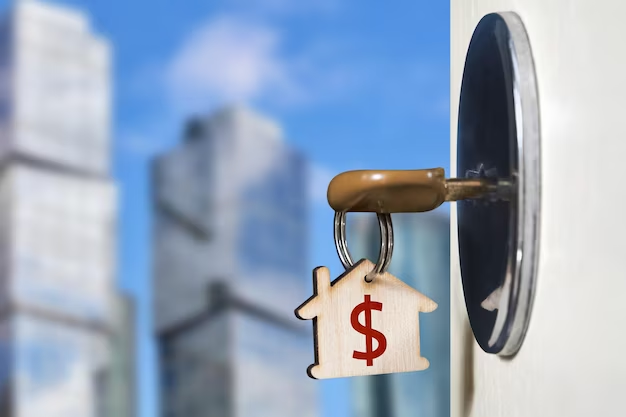When delving into the world of property investment, the allure of Dubai is undeniable. The current mortgage rates in Dubai are a decisive factor for buyers, given their direct influence on the overall affordability of property in this bustling metropolis. Generally, these rates lie in the range of 3% to 5%, although they can vary widely depending on economic conditions, type of mortgage, and borrower’s credit history. This guide provides an in-depth look at Dubai mortgage interest rates to help potential property owners and investors make informed decisions.
Understanding Dubai Mortgage Interest Rates
Mortgage interest rates are a pivotal concern for prospective home buyers or investors seeking a mortgage loan in Dubai. In the city’s dynamic real estate market, buyers can typically choose between two kinds of interest rate structures:
- Fixed-Rate Mortgages: These provide a consistent interest rate throughout a predetermined period of the mortgage, offering payment stability and immunity from rate fluctuations.
- Variable-Rate Mortgages: These interest rates vary with time, often in response to a benchmark rate, affecting the predictability of monthly payments.
The average mortgage rates in Dubai can serve as a benchmark for what potential homeowners can expect. Nonetheless, when factoring in other associated fees and charges, the effective cost might be different, underscoring the importance of an exhaustive rate analysis before securing a mortgage.
Factors Affecting Mortgage Rates in Dubai
A multitude of factors weigh in on determining mortgage rates in Dubai. The local and global economy’s ebb and flow notably influences interest rates, typically aligning rate variations with economic activity’s ups and downs. Dubai’s mortgage rates in Dubai are no exception, mirroring these larger economic patterns.
Of equal importance is the valuation of the property and the associated loan-to-value (LTV) ratio, which can significantly affect the interest rates proposed. For example, a lower LTV ratio can lead to more favorable mortgage rates, especially attractive for mortgage in Dubai for non-residents, who may face different financial thresholds.
Creditworthiness also stands out as a determinant of mortgage rates. Those with exceptional credit scores and financial histories often benefit from lower rates due to the reduced risk they pose to lenders.

How to Secure the Best Mortgage Rates in Dubai
To secure the most advantageous mortgage rates, it is critical to understand the current mortgage rates in Dubai and navigate the process strategically:
- Keep your credit history spotless, which helps in securing a favorable interest rate.
- Engage in thorough research across banks to evaluate the best rates available.
- Enlist a mortgage broker’s expertise, particularly valuable for navigating the diverse bank offerings, sharpening your application, and potentially gaining access to better rates.
The Application Process for Mortgages in Dubai
The prerequisites for applying for a mortgage loan in Dubai involve several crucial steps, each important to ensure a smooth process:
- Evaluate your finances and decide on the budget for your property purchase.
- Gather all necessary personal and financial documentation.
- Investigate multiple mortgage options and compare their respective rates.
- Proceed with the mortgage application with a bank of your choice.
- Obtain pre-approval and follow through with the property valuation.
- On favorable valuation and final approval, formally agree to the mortgage terms.
- Finalize your purchase and celebrate your new ownership.
Government Policies and Mortgage Interest Rates
The influence of the Central Bank of UAE’s regulatory framework is a notable element affecting mortgage rates in Dubai. By setting LTV ratio caps for first and subsequent property purchases, the government maintains a vigilant guard over the lending market’s health and integrity.
Moreover, government initiatives directed at enticing foreign investment, such as visa policies tied to property ownership, have the potential to impact mortgage accessibility. These incentives can portray mortgage in Dubai for non-residents in a more favorable light, potentially affecting demand and subsequent interest rates.
Comparison of Mortgage Rates Among Dubai Banks
For those navigating the landscape of mortgage rates in Dubai, a comparative analysis of what different banks offer is an indispensable tool. Below, you’ll find a table outlining a selection of Dubai banks along with their introductory rates for fixed and variable mortgages:
| Bank Name | Fixed-Rate Mortgage | Variable Rate Mortgage |
|---|---|---|
| Emirates NBD | From 2.99% | From 3.24% |
| Abu Dhabi Islamic Bank | From 3.25% | From 3.50% |
| HSBC | From 2.49% | From 2.99% |
| Dubai Islamic Bank | From 2.99% | From 3.49% |
While this table illustrates starting rates, a comprehensive search—potentially facilitated by a mortgage broker—can reveal the nuanced differences among the various mortgage products and real interest rates after all considerations.

Advantages and Disadvantages of Mortgages in Dubai
Prospective homeowners should weigh the pros and cons of utilizing a mortgage to acquire property in Dubai. On the one hand, the advantages of leveraging a mortgage include liquidity retention that allows for investment in other ventures, potential tax advantages, and building equity over time in a property that may appreciate in value. Moreover, with mortgage rates in Dubai remaining relatively competitive, this path could be an accessible route to property ownership for many.
Conversely, the downsides to consider include the long-term financial commitment, the risk of property devaluation, and the potential for rising interest rates that can increase the total amount to be repaid. While defaulting on a mortgage has serious consequences anywhere, it is crucial to understand the local laws and regulations in Dubai that govern such scenarios.
Future Trends in Dubai Mortgage Interest Rates
Predicting the movement of mortgage rates is challenging, as they can be influenced by a range of unpredictable factors, from international economic fluctuations to regional policy adjustments. However, some trends have been observed:
- With economic diversification strategies in place, Dubai may experience a stabilization or even a decrease in mortgage rates, aiming to sustain a conducive environment for investment and residential purchases.
- Technological advancements and the rise of fintech solutions are expected to streamline the mortgage process, possibly resulting in more personalized and competitive mortgage products.
Any individual considering a mortgage in Dubai should stay informed about economic projections and policy developments, as these insights can be instrumental in timing their investment for optimal mortgage interest rates.
Expert Insights on Dubai’s Mortgage Market
Experts in the field of real estate and finance in Dubai point towards a consensus: the potential for property investment in Dubai remains robust. They underscore the significance of a well-thought-out long-term mortgage plan that goes beyond merely securing a low initial rate. Here are a couple of strategies recommended by financial advisors:
- Consider the total cost of the mortgage over its life, including fees, insurance, and penalties for early repayment.
- Stay alert to mortgage rate trends and consider refinancing options when rates are observed to fall, which can potentially save significant amounts of money over time.
Long-term planning and consultation with financial experts are crucial for successfully navigating Dubai’s evolving mortgage terrain.

In a nutshell
Dubai’s real estate market offers a wealth of opportunities for both local and international investors, with mortgage products being a primary facilitator for property investments. It is imperative for prospective buyers to conduct comprehensive research, consult with industry professionals, and critically assess their financial health before committing to a mortgage. The fluctuations in mortgage rates highlight the importance of keeping abreast of financial trends and governmental policies. Ultimately, an informed, careful approach to navigating mortgage interest rates can lead to lucrative and fulfilling property ownership in Dubai.
FAQs
- What is the process for non-residents to obtain a mortgage in Dubai? Non-residents seeking a mortgage in Dubai need to provide additional documentation regarding their income and creditworthiness from their country of residence. The loan-to-value (LTV) ratio for non-residents is typically lower, meaning they will likely need to provide a larger down payment compared to UAE residents.
- Are there any government-imposed limits on mortgage borrowing in Dubai? Yes, the Central Bank of the UAE has set maximum LTV ratios for both first-time and subsequent property purchasers. These differ for UAE nationals and expatriates and also vary based on the value of the property in question.
- Can you negotiate mortgage rates with banks in Dubai? Absolutely. It is possible to negotiate the interest rates and other terms of a mortgage with banks in Dubai. Having a good credit score and solid financial history can strengthen your bargaining position.
- Is it advisable to switch mortgage providers if interest rates drop? Refinancing can be a wise financial decision if interest rates drop significantly. However, the costs of refinancing, including possible penalties and fees, should be carefully weighed against the potential savings from the lower rate.
- Can mortgage rates in Dubai be fixed for the entire duration of the loan? Most banks in Dubai offer fixed-rate mortgages for a certain initial period, typically ranging from one to five years. After the fixed-rate period, the mortgage usually converts to a variable rate based on prevailing market rates. It is essential to consult with the lender for the specific terms and options available.



